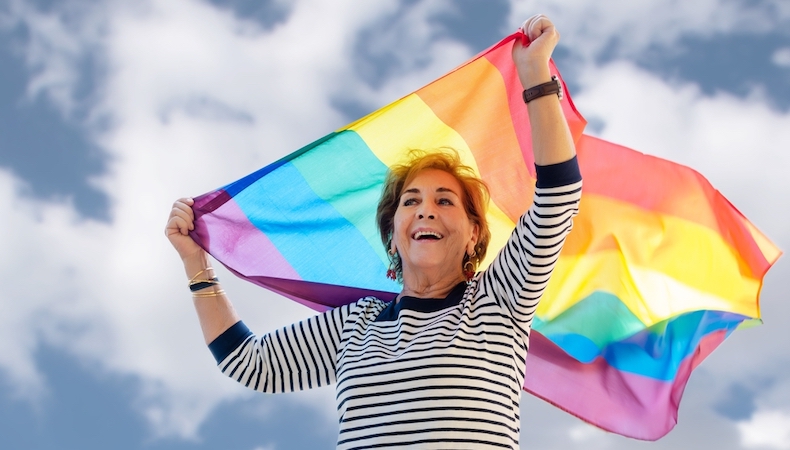Making menopause support truly inclusive means leaving no-one out
Menopause support has shot up the health and wellbeing agenda. Now, the conversation has evolved to consider not just the support put in place but ensuring its inclusivity.
But while menopause awareness has entered the mainstream, and many businesses have woken up to the fact that it’s a key tool if you’re committed to achieving diversity, equity and inclusion (DE&I) goals alongside commercial objectives, offering menopause support inclusive of all can be hard to navigate.
For menopause support to be truly effective it needs to be inclusive of all genders and communities – because this is a life stage that affects us all in different ways. Here are the things businesses need to consider when striving to offer genuinely inclusive support.
1. Speaking to all communities and genders
“There is a heteronormative vision of a person going through menopause – a heterosexual woman aged 50+ – and this excludes a lot of people when the reality is that people of all genders and ages can be affected by menopause,” says Alex Fryer, senior menopause practitioner at Peppy. For example, trans men and non-binary people also go through menopause and are often left out of the conversation.
Focus groups or surveys and encouraging line managers to have the conversation with their direct reports can help ensure workplace support is inclusive of all groups
2. Inclusive communication is key
Ensuring communications around menopause support are written and displayed in an inclusive way is essential for ensuring your campaigns speak to the right people. “Tailor language and visuals so it’s inclusive of all genders,” says Fryer.
“It’s important to be aware that there will be people going through the menopause that do not identify as women and to have a space for them in the menopause conversation,” he says. Being careful with language and terminology used is vital to make it as inclusive as possible.
“Refer sometimes to ‘people going through the menopause’ in order to include trans and non-binary staff, rather than always referring to women. Instead of using imagery of white 50+ women, keep it diverse.” says Fryer.
“Same sex couples going through the menopause together may find they don’t experience it in the same way, which can cause friction. It’s important to realise that people’s experiences can vary enormously, and to address this in the support offered.”
3. Recognising different challenges for different communities
Trans and non-binary people going through menopause may experience different challenges to a hetero-normative person. “For example, a non-binary person who was assigned female at birth may be celebrating the end of periods, which will have played a part in their dysphoria, whilst struggling with the idea of taking female hormones as HRT to alleviate menopausal symptoms.
“A trans man may want to avoid going to a menopause clinic or gynae appointment as they don’t feel this is a space for them,” says Fryer.
This is why access to personalised and confidential support – and to menopause experts that can understand the nuances of these experiences – makes a difference. Education and awareness-raising is key for any organisation, with training for line managers on dealing with menopause in an inclusive way and at every level within the organisation – not just for the top earners.
“It’s also important to be aware that, culturally, menopause can be a conversation that’s difficult to have for some ethnicities and to handle this with sensitivity,” says Fryer. This is why confidential and discreet support via an app like Peppy can make such a difference to employees’ lives.
Workplaces are diverse, so for menopause support to have an impact and deliver the results businesses are striving for, it needs to be inclusive.
Rather than defaulting to gendered assumptions, making space for people of any gender or ethnicity and focusing on offering support tailored to individual needs will help businesses to ensure everyone feels understood, included and supported.
Supplied by REBA Associate Member, Peppy
Peppy is a global app-based employee benefit giving employees access to expert clinical care in menopause, fertility, pregnancy, and more - trusted by 250+ companies and reaching over 3 million people.








